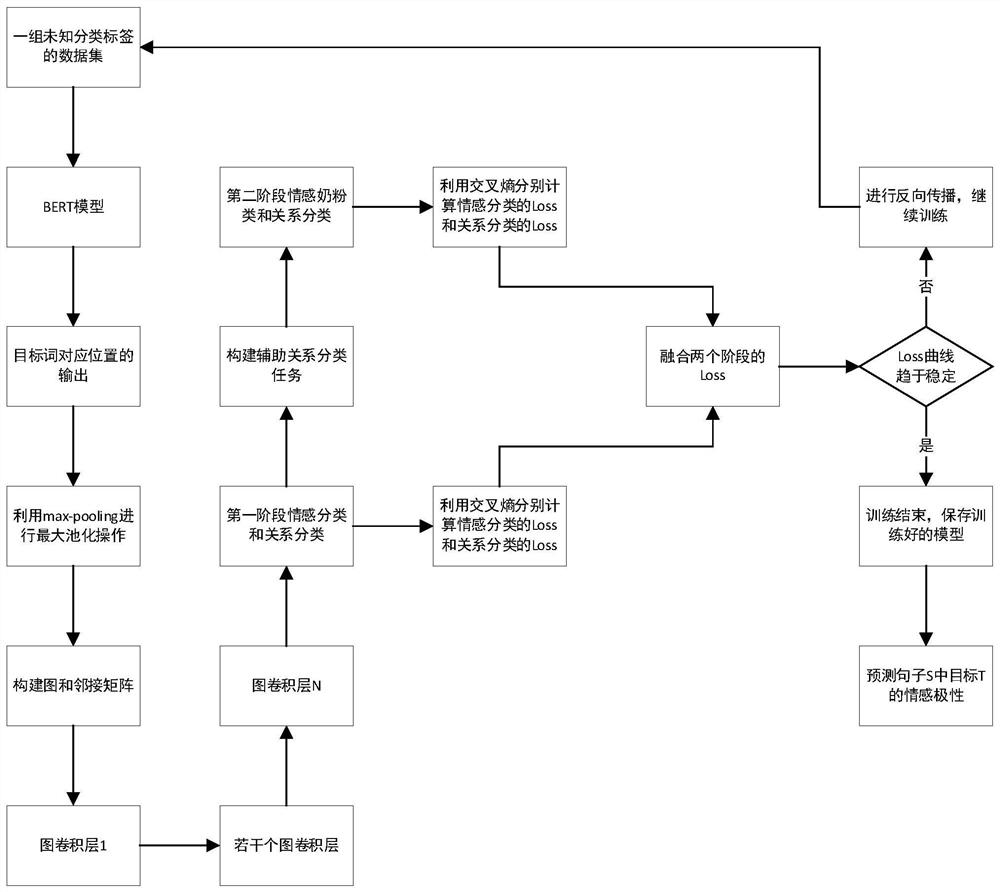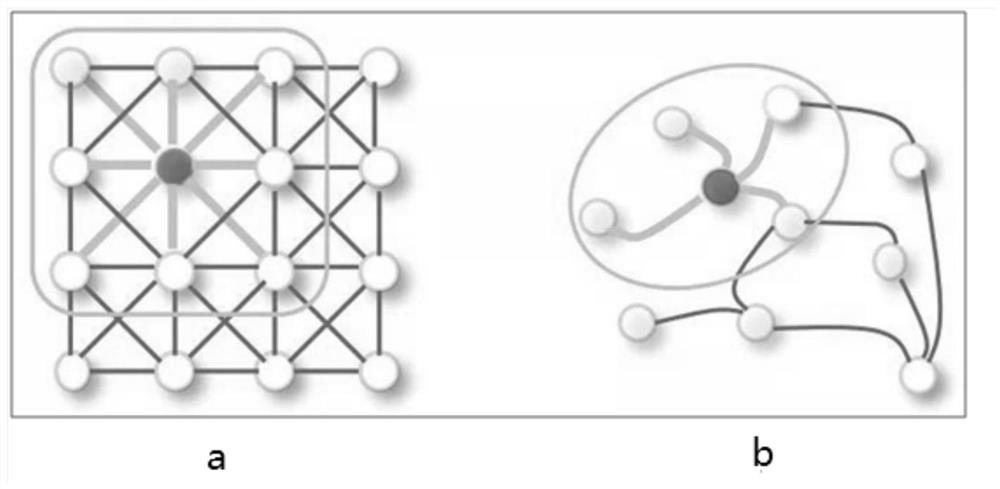A Target-Specific Sentiment Classification Method Based on Graph Neural Network
A technology for specific goals and emotion classification, applied in neural learning methods, biological neural network models, neural architectures, etc., can solve the problems of neglect, high cost, and emotional dictionaries that consume a lot of manpower and material resources, and achieve the goal of improving accuracy and guaranteeing results. Effect
- Summary
- Abstract
- Description
- Claims
- Application Information
AI Technical Summary
Problems solved by technology
Method used
Image
Examples
Embodiment Construction
[0062] In order to make the objectives, technical solutions and advantages of the present invention clearer, the present invention will be further described in detail below with reference to the specific embodiments and the accompanying drawings. It should be understood that these descriptions are exemplary only and are not intended to limit the scope of the invention. Also, in the following description, descriptions of well-known structures and techniques are omitted to avoid unnecessarily obscuring the concepts of the present invention.
[0063] The following detailed description is given in conjunction with the accompanying drawings.
[0064] Nodes in the present invention represent target words.
[0065] GCN in the present invention represents a graph convolutional neural network.
[0066] The [CLS] label refers to the classification label added by the BERT model in the word segmentation.
[0067] The [SEP] tag refers to the end-of-sentence tag added by the BERT model a...
PUM
 Login to View More
Login to View More Abstract
Description
Claims
Application Information
 Login to View More
Login to View More - R&D
- Intellectual Property
- Life Sciences
- Materials
- Tech Scout
- Unparalleled Data Quality
- Higher Quality Content
- 60% Fewer Hallucinations
Browse by: Latest US Patents, China's latest patents, Technical Efficacy Thesaurus, Application Domain, Technology Topic, Popular Technical Reports.
© 2025 PatSnap. All rights reserved.Legal|Privacy policy|Modern Slavery Act Transparency Statement|Sitemap|About US| Contact US: help@patsnap.com



